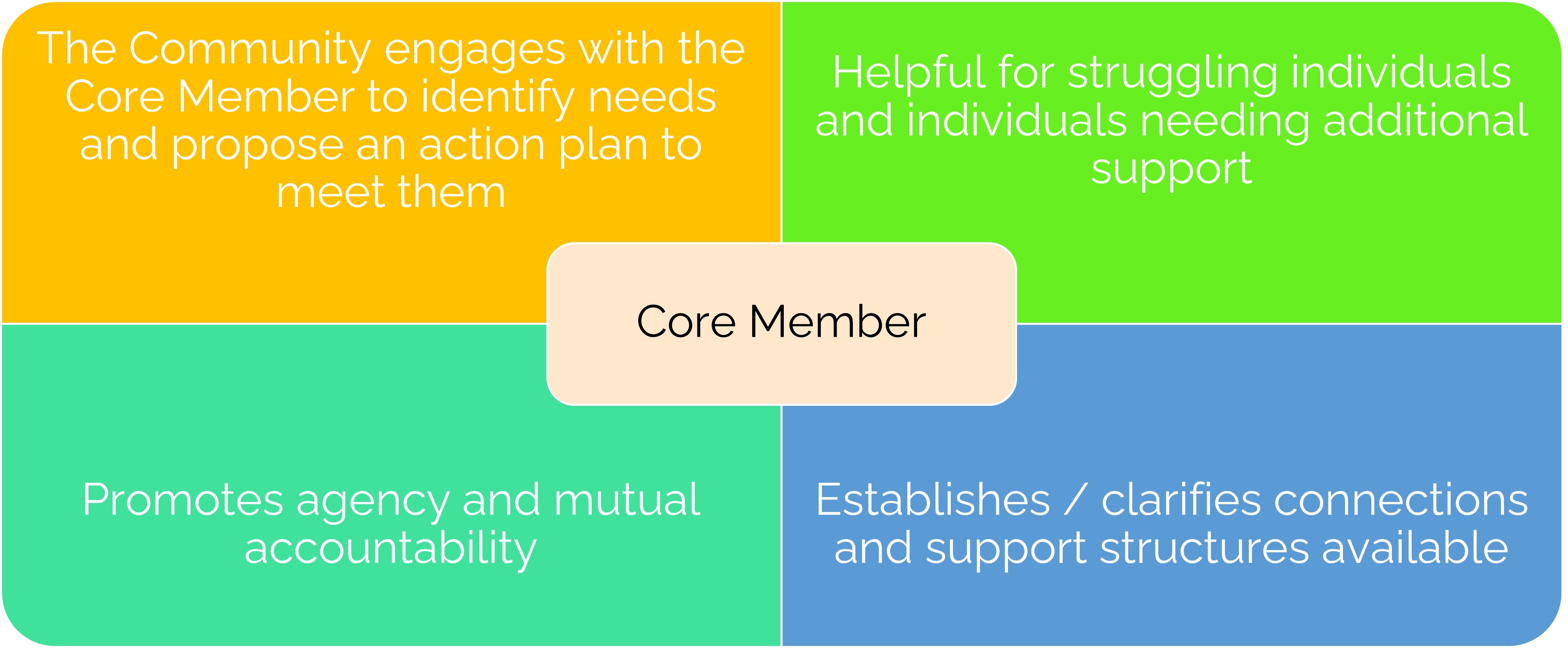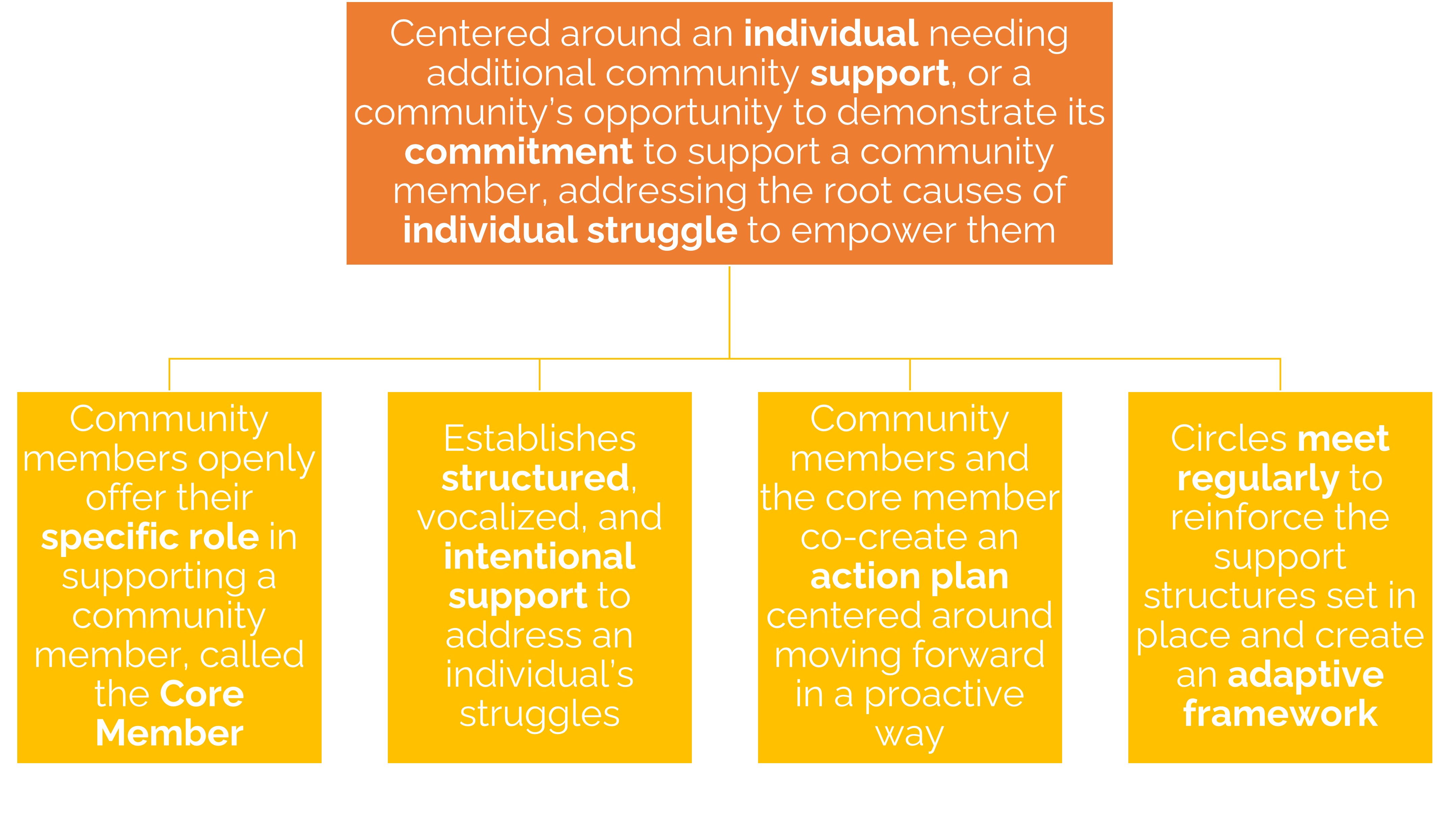Connection and Support Circles
Involving community to support individuals
Gathering to provide supportive avenues
The Reed Restorative Practices Team promotes Connection and Support circles as “Tier 3” circles, or the third level of community that helps them thrive. These special circles can be applied in many contexts and serve various purposes, but in its most general sense will involve a community gathering around an individual, called the Core Member that they feel needs additional support. Through intentional and concrete action from the community, Connection and Support Circles provide the Core Member practical, emotional, and spiritual support to engage and transition into life within the community or to navigate certain struggles. The Restorative modality helps individuals be accountable for their actions (when applicable) or for the support they are being offered. This process works through collaboration and mutual accountability, using community to assist individuals.

Emphasizing support and accountability
The two overarching themes of the Connection and Support Circle, support and accountability, each will apply uniquely in different contexts, but represent the general aims in which communities identify the need to intentionally involve themselves in helping an individual succeed. Types of support can include administrative support, family and friend support, support from students, staff, and faculty, counselors, and other entities that encapsulate the core member’s needs.
At Reed, Connection and Support Circles can support students that have taken a leave of absence, individuals struggling with school, students that have been suspended/expelled, isolated individuals, or any person facing obstacles in the community environment. In some cases, Connection and Support Circles are called re-entry or welcoming circles, when they involve the core member’s transition into the community. They can otherwise provide other kinds of support to establish a healthy environment to promote students’ success while navigating difficult social or emotional terrain.
Connection and Support Circles take the same general shape as Community Building Circles but importantly involve a guided topic that intends to address the needs of the Core Member. Thus, while other circle elements such as the talking piece, opening ceremony, and closing ceremony, will all be present, there is an additional component that centers around crafting support structures for the Core Member.
Connection and Support Circles give the community an opportunity to vocalize their support through meaningful and concrete actions that promote mutual accountability for the Core Member and their community. As the Core Member vocalizes their needs, the community proposes their role in ensuring those needs are met to create an action plan that proposes specific, measurable, and concrete ways in which various community members can be supportive. An example might be, for a student facing academic difficulties, ensuring a weekly meeting with a tutor, and following up with that student to see whether the tutoring is helpful. Importantly, the action plan is co-created and necessitates the student and the community both holding themselves accountable for following through with the plan. Connection and Support circles can meet regularly to help provide adaptable and continuous support in response to the changing needs of the Core Member. This type of support involves doing with, which implies that facilitators and the community will provide structured support but will not do to or for; the Core Member is responsible for accepting and participating in the action plan as much as the community is responsible for providing specific supportive avenues.

Connection and Support Circles involve a number of community members able to demonstrate their support for the Core Member. This can include counselors, academic advisers, friends and family, professors, among others; the Core Members’ specific needs will often dictate who should participate in crafting the action plan, and the circle’s framework will adapt around those needs.
All circle processes are a confidential space, and we won’t discuss what happens throughout the process with anyone outside of the circle context. If you wish to make an inquiry regarding a Connection and Support Circle, either as a community member or as a Core Member, please fill out our google form or email us at restorativepractices@reed.edu.